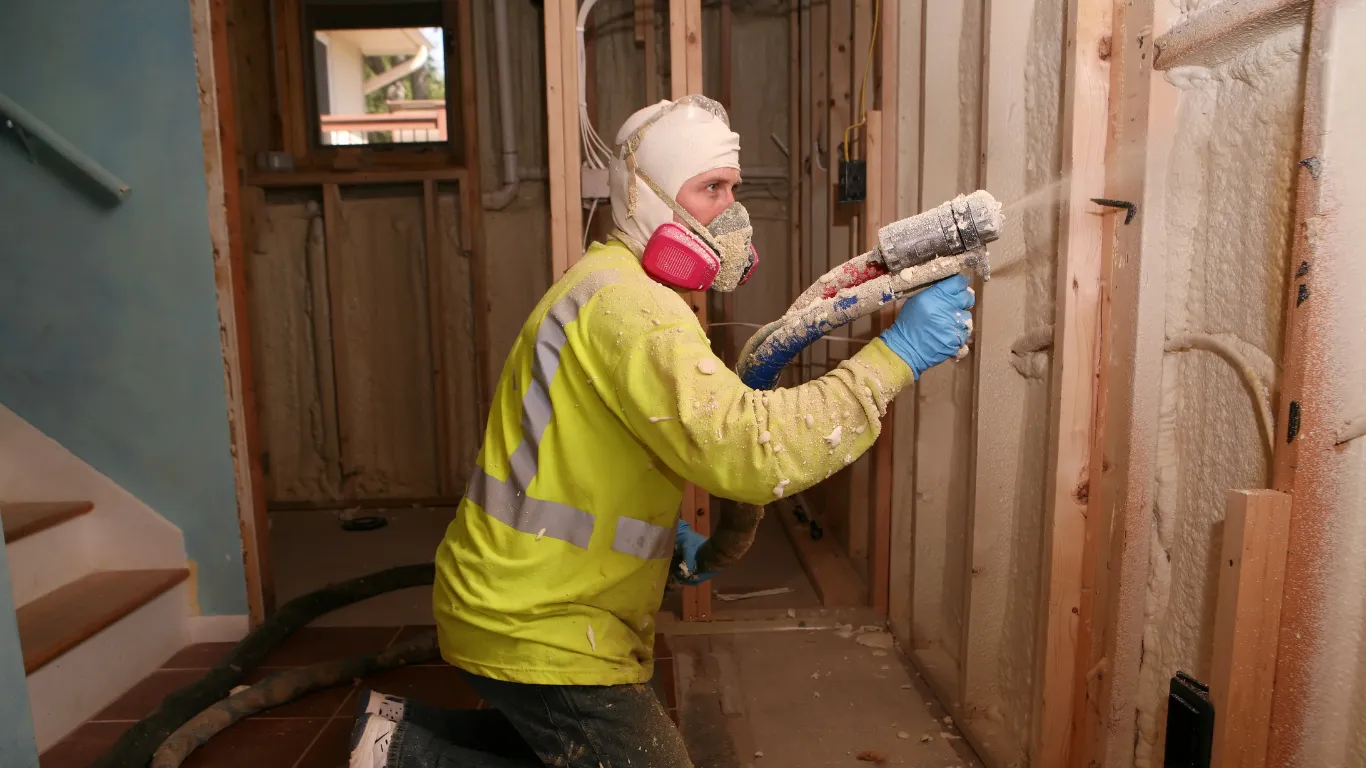WHY ARE YOU HERE?
No matter if you are a Homeowner, Home Builder, Contractor or Realtor, you are here now because you are deciding where and which insulation product to have installed, as well as which insulation contractor to hire to complete the installation.

We work with you to help keep control: control of temperature, control of educated recommendations, and control of your costs.
Insulation services should be an educated decision, as well as an investment, and not just viewed as an immediate expense
WHAT PRODUCT & SERVICES ARE AVAILABLE TO YOU?

Spray Foam Insulation
Installed anywhere inside, outside, and in-ground It is water-resistant, while also serving as a vapor barrier and high performance air barrier. With a more compact structure it has the highest R-value of any insulation material you can buy, up to R6 per inch. Furthermore, spray foam takes up much less space than fiberglass or comparable blown-in materials.
Not to mention, it can create a 95%-100% air seal to create a net zero energy efficient home versus conventional insulation at most creates 80%-85% air seal. If spray foam is installed and cured properly, it should not emit fumes or odours
Current Code: R22-R24 (main floor walls) – approx. 3.5 inches
Lifespan: A lifetime (if undamaged)

Batt & Poly Insulation
Fits into open cavities like walls, attic spaces, and unfinished basements Fiberglass batts are among the most inexpensive ways to insulate your home. Large, rolled batts of fiberglass are designed to fit the standard distance between studs. They fill the large void and stop air from penetrating the exterior wall. Batts do not themselves create a vapour barrier.
A proper installation must include a separate vapour barrier. When installed tightly and securely, fiberglass batts improve energy efficiency by 25 to 30 percent and are rated at an R4 per inch.
Fiberglass R12-R40
Lifespan: Around 15 to 20 years





